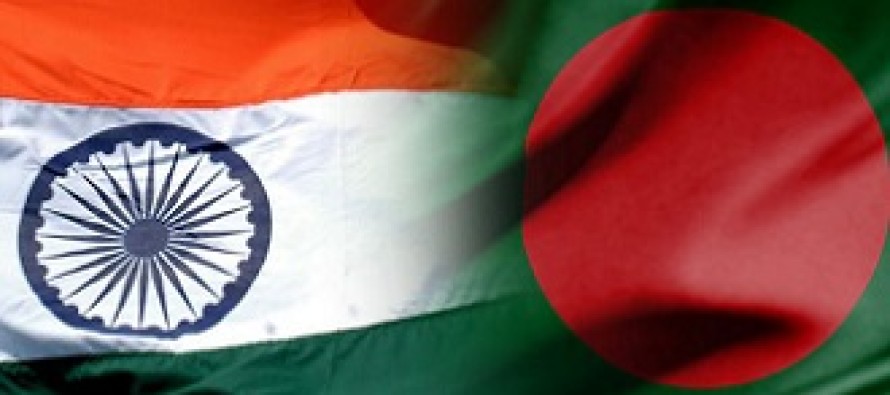What message will Indian External Affairs Minister Sushma bring to Dhaka?

The Modi government is in power and naturally everyone in Bangladesh is thinking how relations between Bangladesh and India will develop. Will it be the same or accelerate or different?
Some clues to the question may reveal when Indian External Affairs Minister Ms. Sushma Swaraj visits Dhaka on 25th June. It is not only the Minister’s invitation to Bangladesh Prime Minister Sheikh Hasina on behalf of her Indian counterpart, but also whether she meets the civil society members and political leaders including BNP’s Chairperson Khaleda Zia.
Before I discuss the relations, let us note that although BJP under Modi has gained huge majority in the parliament, its popular support was reportedly only 31% (Congress 19%) and the BJP’s massive majority is due to the first-past-the post electoral system and under proportional representation , BJP would have got a little more than 160 seats.
The other fact is that BJP has no majority in the Rajjya Sabha (the Upper House) and to pass any law, the majority votes of both Lok Sabha and Rajya Sabha are required. Therefore it is a huge limitation on the BJP to legislate on any subject it wants except holding the joint session. However the joint session of the two houses cannot amend the constitution but can enact or amend laws.
It is correct that foreign policy does not change with the change of the government because geo-political and economic realities remain as they are and especially with neighbouring countries. However domestic agenda and political ideology of the new government influence the foreign policy because domestic and foreign policies are two sides of the same coin.
In this context , let us note certain statements of powerful leaders of BJP on Bangladesh before the party came into power.
Arun Jailtly , the powerful defence minister and finance Minister under the Modi government and the then opposition leader at the Rajya Sabha reportedly stated in February that the North – Eastern border, particularly with Bangladesh needed to be clearly defined and entirely fenced.
Jaitly, in a statement just after the January 5 election reportedly said: “India, which has thousands of kilometres of borders with Bangladesh, would like to see a peaceful poll accompanied by continuation or transfer of power. It has not happened. We hope that the political process in Bangladesh stabilises and important political parties are in a position to settle their domestic political issues.” The statement implied that BJP did not approve non-inclusive January 5th Election in Bangladesh.
Most analysts appear united in their view that fixing the economy will be Modi’s top priority and the purpose of his foreign visits would be to accelerate the economy and security. Modi agenda in the joint session of parliament revealed that more empowerment is to be provided to the states as BJP considers the federal structure of the constitution has been diluted. That means the Indian states which share border with Bangladesh will have more say than before on issues with Bangladesh.
Indian Ministry of External Affairs spokesman Syed Akbaruddin drove home the idea that Modi’s foreign policy would prioritise India’s immediate neighbors; he notes that while the “the prime minister’s inbox relating to foreign policy is very crowded … India’s foreign policy priorities are in the neighborhood”.
Modi’s first two-day foreign visit from 15th June to Bhutan showed his priority. In addition to bilateral matters, Modi may enlist Bhutan’s assistance in internal security matters. In the early 2000s, the Royal Bhutanese Army weeded out anti-state insurgents, including the United Liberation Front of Assam, that were using Bhutan as a base.
It is noted that Prime Minister Sheikh Hasina had requested in a letter to Narendra Modi to consider Bangladesh his “second home” and make it the first country for starting his overseas trips and also telephoned to congratulate him on his massive victory. However it seems Modi has no immediate plans to visit Bangladesh and will instead send his External Affairs Minister.
On Bangladesh-India relations, although has been many gains in many areas, severe confidence deficit remains with Bangladesh on India’s commitment to fulfill its pledges with Bangladesh, such as, signing of the Teesta water sharing, non-ratification of land boundary agreement and continued killing or kidnapping of Bangladeshi citizens at the border.
BJP as the opposition maintained the Congress-led government had to explain how it could ratify the boundary-agreement with Bangladesh as after the 1973 verdict of the Supreme Court in the Keshavanand Bharti case the basic structure of the Constitution including the country’s boundary cannot be changed..
However once a party comes into power behaves differently from what it did as the opposition party and it is expected that BJP would certainly change its earlier position to accelerate productive relations with Bangladesh considering the strategic geographical location of Bangladesh which would be crucial for security and connectivity to the northeastern states of India.
People and media in Bangladesh are looking forward to her visit to assess in which direction the bilateral relations will flesh out. However it is ominous if the recent report of the Calcutta media is correct that the process of sending back the “infiltrators” from Assam to Bangladesh has started.


